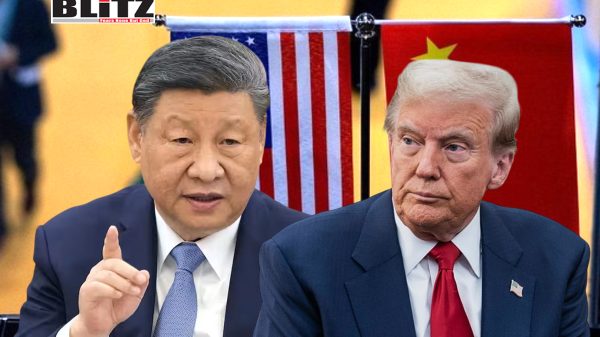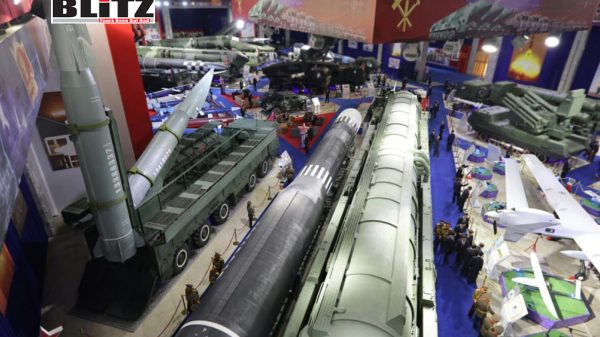Afghanistan–Pakistan relations strained amid border tensions and shifting regional alliances
- Update Time : Monday, October 13, 2025

Afghanistan and Pakistan share one of the most complex and volatile relationships in South Asia. Bound by deep cultural, religious, and ethnic ties, yet divided by decades of political distrust and security tensions, the two neighbors remain caught between the hope for stability and the reality of persistent friction. While Afghanistan’s Foreign Minister Amir Khan Muttaqi recently described the future of India–Afghanistan relations as “very bright,” his silence regarding Pakistan reveals much about the current state of ties between Kabul and Islamabad – strained, uncertain, and burdened by mutual suspicion.
Afghanistan and Pakistan are linked by a 2,600-kilometer-long border – the Durand Line – drawn during the British colonial era. From the moment Pakistan was created in 1947, Kabul has refused to officially recognize this boundary, arguing that it divided ethnic Pashtun tribes and territories historically linked to Afghanistan. The border issue, which remains unresolved, has been a constant source of tension for over seven decades.
During the Cold War, Pakistan became a frontline ally of the United States, while Afghanistan – especially under the rule of King Zahir Shah and later the communist regime – maintained closer ties with the Soviet Union. When the Soviet invasion of Afghanistan began in 1979, Pakistan emerged as the primary supporter of the Mujahideen resistance, hosting millions of Afghan refugees and serving as a base for the CIA-backed anti-Soviet jihad. While this period strengthened people-to-people connections, it also planted the seeds of political and ideological tension that would later define Afghan-Pakistani relations.
The rise of the Taliban in the 1990s further complicated this relationship. Pakistan’s Inter-Services Intelligence (ISI) was one of the key architects behind the Taliban’s emergence, viewing the movement as a means to ensure a friendly regime in Kabul that would prevent Indian influence and secure Pakistan’s western flank. When the Taliban captured Kabul in 1996, Islamabad quickly recognized the new government – one of only three countries to do so, alongside Saudi Arabia and the United Arab Emirates.
However, Pakistan’s deep involvement in Afghanistan’s internal affairs has long been viewed with suspicion by Afghans. Many in Kabul accuse Islamabad of supporting militant networks, particularly the Taliban and the Haqqani Network, as tools to exert political influence. Even after the Taliban’s return to power in August 2021 following the US withdrawal, relations between the two sides have remained far from cordial.
When the Taliban regained control of Afghanistan, Pakistan’s leadership initially celebrated the event, hoping for a stable and cooperative government in Kabul. Islamabad believed that its close ties with the Taliban leadership – many of whom had spent years in Pakistani territory – would help secure its security and economic interests.
But within months, that optimism faded. The primary source of discord has been the rise in cross-border attacks by the Tehrik-i-Taliban Pakistan (TTP), a militant group ideologically aligned with the Afghan Taliban. Despite repeated requests, Kabul has been unwilling or unable to curb TTP operations from Afghan soil. Islamabad accuses the Taliban government of providing sanctuary to TTP leaders who target Pakistani forces across the border, particularly in the Khyber Pakhtunkhwa and Balochistan provinces.
The Taliban, in turn, rejects Pakistan’s claims, arguing that Islamabad’s internal security challenges stem from its own policies and not from Afghan territory. Tensions have flared repeatedly, leading to deadly border skirmishes, the closure of key crossings like Torkham and Chaman, and disruptions in bilateral trade – a critical lifeline for Afghanistan’s struggling economy.
The Durand Line remains the most visible symbol of mistrust. Pakistan has fenced most of the border to prevent illegal crossings and infiltration, but the Taliban government refuses to recognize this demarcation. Border incidents, often involving Pakistani forces erecting barriers or patrolling disputed areas, have frequently escalated into armed clashes.
In several instances, both sides have accused the other of unprovoked aggression. For example, in December 2022 and again in early 2024, intense exchanges of fire at Chaman left civilians dead and disrupted trade routes for weeks. These recurring incidents have made the border not just a geopolitical fault line but a humanitarian one – affecting thousands of traders, laborers, and refugees who depend on cross-border movement.
Despite the political and security tensions, Afghanistan and Pakistan remain economically intertwined. Pakistan continues to serve as Afghanistan’s main trade partner and transit route to global markets. However, trade volumes have dropped significantly due to frequent border closures and new tariff barriers. Afghan traders often accuse Pakistani authorities of arbitrary customs rules and political manipulation, while Pakistan complains about smuggling and lack of cooperation from Kabul.
To diversify its economic options, the Taliban-led administration has turned increasingly toward Central Asia, Iran, and now India. The recent statements by Foreign Minister Amir Khan Muttaqi praising India signal a strategic recalibration – Kabul appears to be seeking to reduce its dependence on Pakistan and strengthen ties with alternative partners.
Another major flashpoint is the refugee issue. Pakistan has hosted millions of Afghan refugees for decades, but public sentiment has turned increasingly hostile in recent years. In 2023 and 2024, Islamabad announced plans to deport undocumented Afghans, citing security concerns. Thousands were detained and forcibly repatriated, leading to condemnation from humanitarian organizations and anger from the Taliban government. Kabul accused Pakistan of mistreating Afghan nationals and violating human rights, while Islamabad insisted the measures were necessary to curb terrorism and illegal migration.
The deterioration of Afghan–Pakistan relations carries serious regional implications. The security of the entire region – including China’s Belt and Road projects and Central Asia’s connectivity initiatives – depends on stability along the Afghan-Pakistani border. China, which has significant economic interests in both countries, has quietly encouraged dialogue. Meanwhile, the reemergence of India as an active player in Afghan diplomacy further alters the balance.
India’s recent outreach to the Taliban government, including high-level meetings with Amir Khan Muttaqi and aid initiatives, represents a subtle but significant shift in regional dynamics. For Pakistan, this development is alarming – it fears that growing India–Afghanistan cooperation could marginalize its influence in Kabul.
In essence, Afghanistan–Pakistan relations are trapped between history and geopolitics. The Taliban government’s growing frustration with Pakistan’s border actions, Islamabad’s anger over TTP sanctuaries, and the refugee crisis have turned what was once touted as a “brotherly relationship” into a cold and transactional engagement.
While both sides periodically express a desire for improved ties, genuine trust remains elusive. The Taliban’s efforts to court India, Iran, and Central Asian states suggest that Kabul is diversifying its diplomatic options, no longer viewing Pakistan as its inevitable partner.
Unless both governments take concrete steps to address mutual grievances – particularly border management and counterterrorism cooperation – the relationship will remain locked in a cycle of blame and confrontation.
At this moment, as India–Afghanistan relations show signs of renewal and optimism, the same cannot be said for the Afghanistan–Pakistan dynamic, which continues to drift toward estrangement rather than reconciliation.










